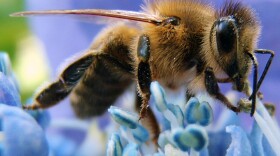-
Beekeepers across the country have reported high rates of honeybee loss this year, but it's unclear right now if there's a main reason for their deaths.
-
Attendees may speak with and listen to local experts on ways to help pollinators and drought strategies for their landscapes. The first 1,000 attendees get a free WaterSaver plant with a choice of Red Shrimp plant, Esperanza, blue spires sage, and Pride of Barbados.
-
How are the bees doing these days? While there was a significant decline in bee populations in recent years, there's been a surprising uptick lately. However, this doesn't mean the crisis is over. Honeybee populations are increasing – but wild bee populations are still struggling.
-
When a honeybee colony becomes overcrowded, the queen and hundreds — or sometimes thousands — of her worker bees abandon the nest in search of a new location with more space and ample resources.
-
Scientists wanted to learn whether bees, like humans and other mammals, had any interest in playing for fun's sake. They say they have evidence that bees do, and that could change how we view insects.
-
The icy weather of February affected all sorts of wildlife in Texas and damaged plants across the state, including the ones honeybees rely on for food. Here's how you can safely feed the bees:
-
Today is the first day of spring, and it's time for all those bugs to start coming out into the sunshine. How did the historic freeze in February affect our local insects? Will there be more or less of them this year? Dr. Jessica Beckham is an entomologist at the University of Texas at San Antonio.
-
What humans can learn from animals about living in harmonyIn some rural African communities, elephants and humans are competing for space and resources like never before. Zoologist Lucy King shares her solution to the conflict: a simple beehive on a fence.
-
As there continue to be reports of honeybee colony loss, we get the latest from a researcher who has been looking at the causes of the decline
-
Scientists at the University of Texas at Austin posit that glyphosate destroys specialized gut bacteria in bees, leaving them more susceptible to infection and death from harmful bacteria.
Play Live Radio
Next Up:
0:00
0:00
Available On Air Stations









